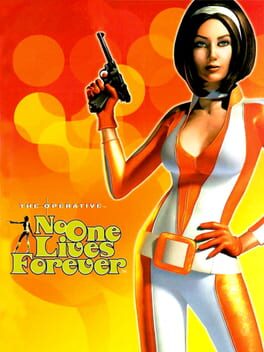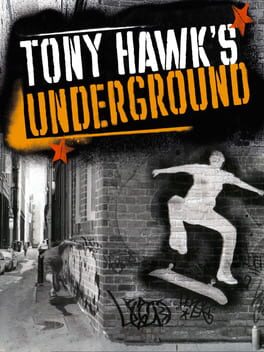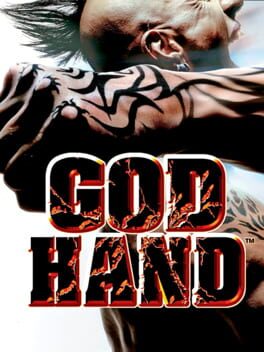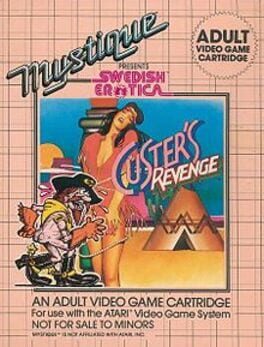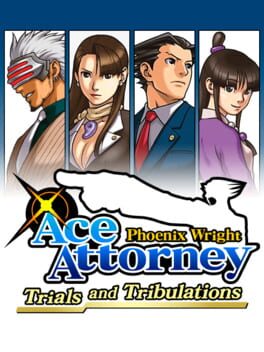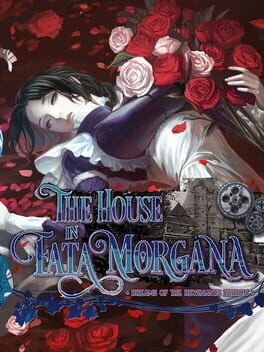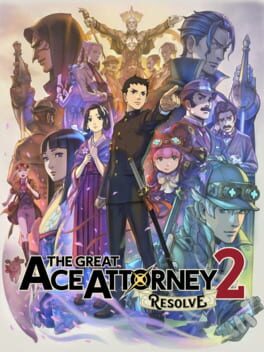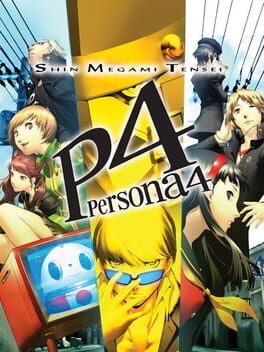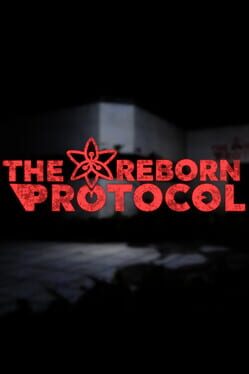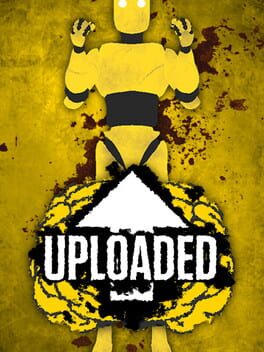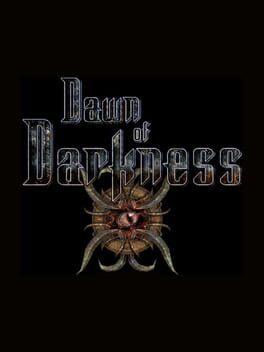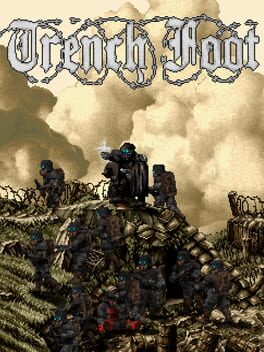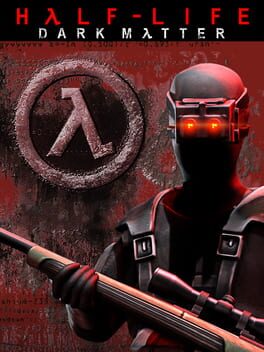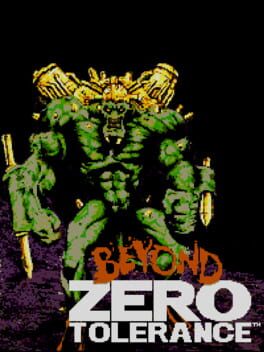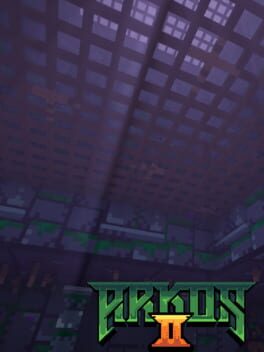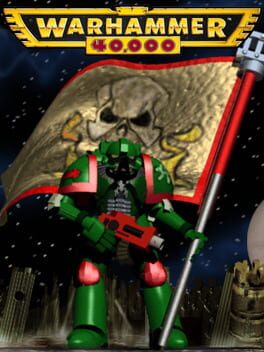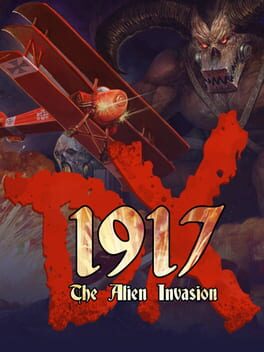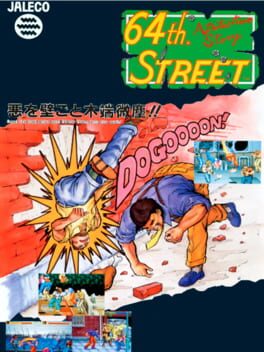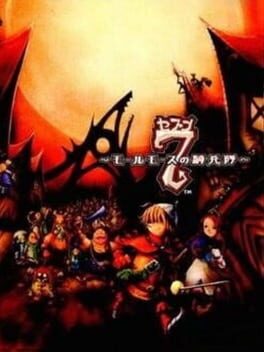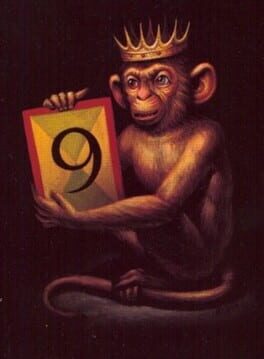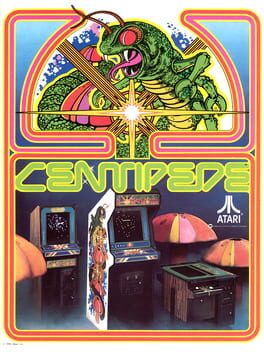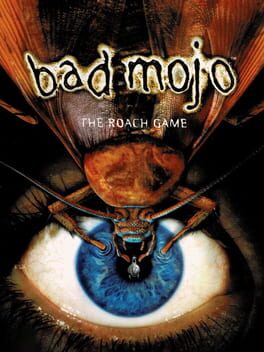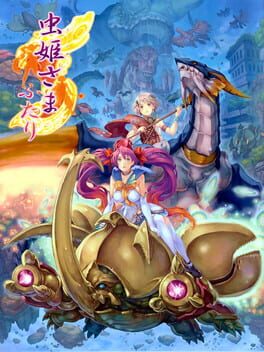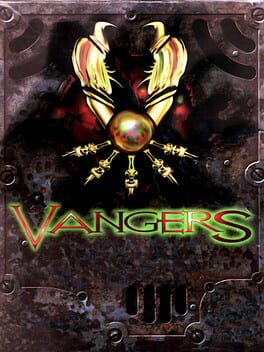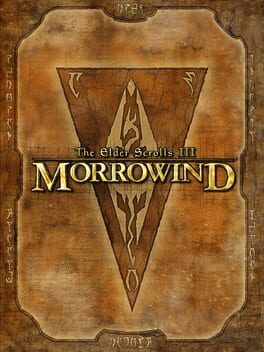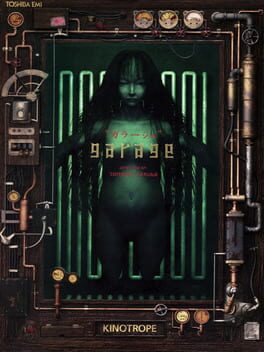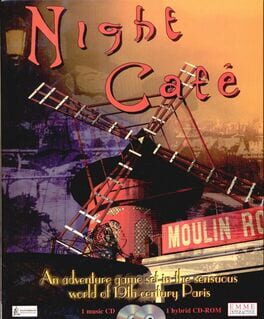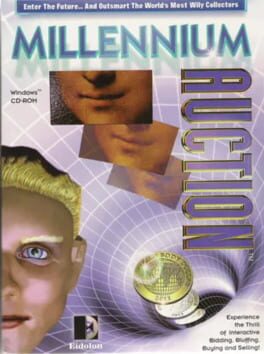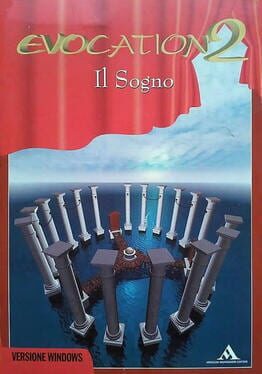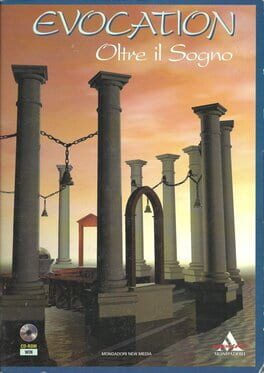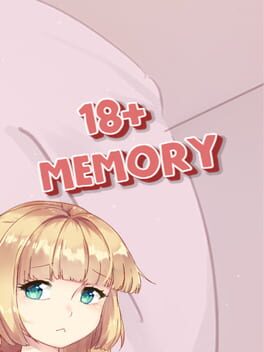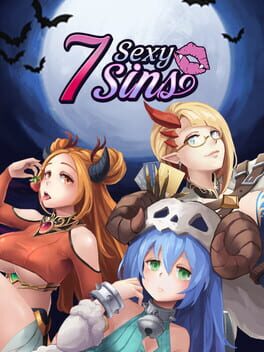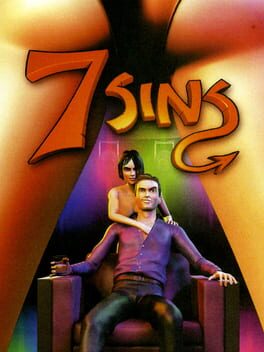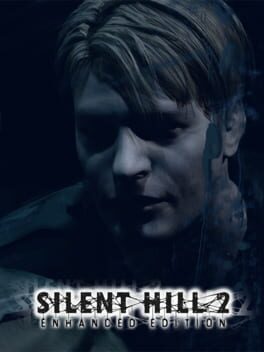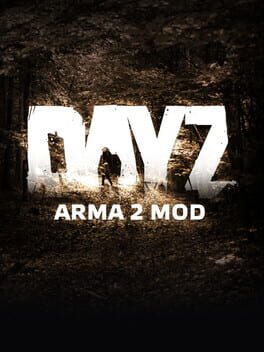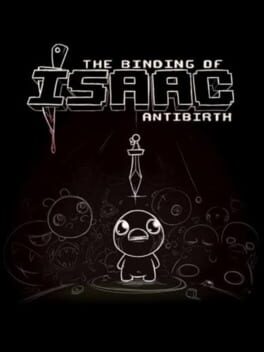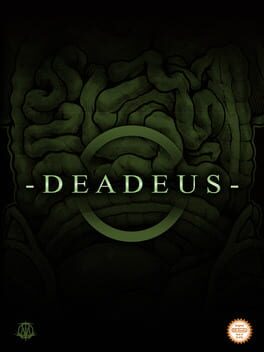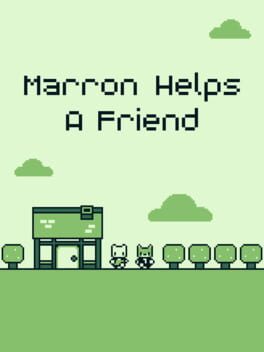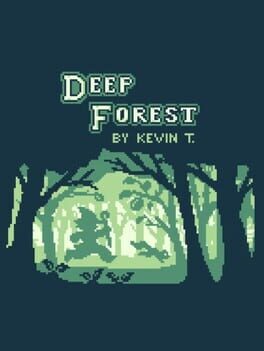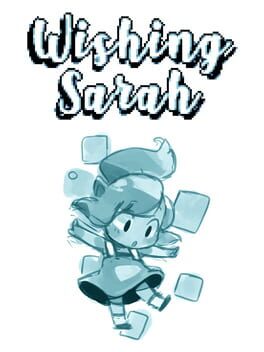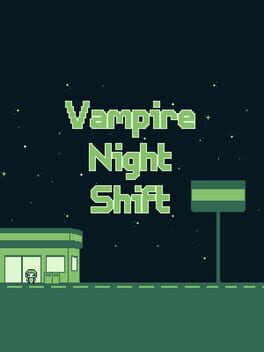40 reviews liked by megafat1
Nothing
2024
⠀⠀
⠀⠀
Nothing
2024
⠀⠀
⠀⠀
Absolutely floored by how good the AI in this is. Today, Monolith are probably more well known for Shadow of Mordor’s Nemesis system or the fact that F.E.A.R.’s AI is so clever it had a short MIT paper written about it, but you can see their talent for this sort of thing on full display in No One Lives Forever too. Ideally, when we wheel out the phrase “feels like it’s from the future,” we should reserve it for special games like this which genuinely outclass stuff being released over two decades later in crucial areas like these.
“Enemy variety” is often conflated solely with the number of different types of enemies a game has, and NOLF’s enemy AI is a good showcase of why that’s misleading. The vast majority of NOLF’s enemies are humans, mostly being differentiated via the weapons they’ve equipped or which parts of their body are armoured (accentuated by a really cool limb-based damage system), but it never, ever feels stale because of how versatile their behaviour is. They can duck, lean, dodge roll, sway from side to side, knock over environmental objects to create some makeshift cover, blindfire over that makeshift cover, work together with other enemies to flank you, even run in a zigzag motion to throw off your aim if there’s no cover nearby, and probably more that I’m not aware of. Combine these kinds of dynamic behaviours with level design that often presents you with more than one path forward plus all of Cate’s weird gadgets, and the sum is a game where any given encounter can play out in any number of ways. Bear in mind that this also came out an entire year before Halo CE flexed on the competition with its similarly brainy AI. The boss fights aren’t quite as flexible as the enemies, but considering how few FPSs even attempt to have bosses at all, it’s nice to have them here for the occasional breather. Y’know?
When it comes to sneaking about in NOLF, enemies are less consistent – their line of sight varies between a few feet and what feels like miles depending on which level you’re playing – but not nearly to the point where stealth should be a point of derision for the game. I can’t imagine looking at NOLF’s stealth with the mindset of “this doesn’t work as well as it could” instead of “it’s impressive that this works as well as it does.” Again, bear in mind that 3D stealth games as we know them had only existed for about two years by the time NOLF came out. Taking that into consideration along with the fact that it’s not even a pure stealth game, it’s ridiculously ambitious. We’ve got different sound levels depending on the type of surface you’re walking on, gradient light/dark levels, various gadgets to misdirect specific kinds of enemies, and don’t get me started on its sound propagation – apart from Thief, this is the only (pseudo)stealth game I’ve played in which you can rely purely on audio to reliably tell where enemies are. It’s pretty conspicuous that you can’t lean around corners (something Monolith themselves must’ve noticed considering they added that in the sequel), and more grapple points to reach higher places would’ve been appreciated, but those are about all it lacks.
What NOLF doesn’t lack is charm. Do you love anything as much as the guys who made this clearly love spy movies, funky basslines and the 1960s? Don’t be so sure. The writing’s so witty at times that one of my favourite parts of the game consists purely of dialogue choices, where you interview one of the clumsier villains who’s clearly in over his head with this whole terrorism business. The swing-y music’s a pleasure to listen to, but it also serves a helpful purpose since it dynamically switches between a bunch of remixes depending on whether or not you’ve been spotted. Cate’s a great protagonist and bounces off the funny, visually distinctive supporting cast really well. It even has a silly post-credits level of dubious canonicity themed around monkeys. Why do games not do fun stuff like that anymore?
Basically, if you’re hankering for an old-ish school single player FPS in the vein of Return to Castle Wolfenstein or Half Life which is absolutely dripping with soulfulness, you owe NOLF your time. The trouble is you can’t buy it anymore, but fortunately there’s a top notch fan revival site where you can download it, the sequel and the spinoff all for free, with support for modern resolutions and glitch fixes among other stuff. I don’t think the publishers will be too bothered if you do considering none of them are sure who owns it anymore. No One Lives Forever™, but thanks to the fans, this series hopefully will.
“Enemy variety” is often conflated solely with the number of different types of enemies a game has, and NOLF’s enemy AI is a good showcase of why that’s misleading. The vast majority of NOLF’s enemies are humans, mostly being differentiated via the weapons they’ve equipped or which parts of their body are armoured (accentuated by a really cool limb-based damage system), but it never, ever feels stale because of how versatile their behaviour is. They can duck, lean, dodge roll, sway from side to side, knock over environmental objects to create some makeshift cover, blindfire over that makeshift cover, work together with other enemies to flank you, even run in a zigzag motion to throw off your aim if there’s no cover nearby, and probably more that I’m not aware of. Combine these kinds of dynamic behaviours with level design that often presents you with more than one path forward plus all of Cate’s weird gadgets, and the sum is a game where any given encounter can play out in any number of ways. Bear in mind that this also came out an entire year before Halo CE flexed on the competition with its similarly brainy AI. The boss fights aren’t quite as flexible as the enemies, but considering how few FPSs even attempt to have bosses at all, it’s nice to have them here for the occasional breather. Y’know?
When it comes to sneaking about in NOLF, enemies are less consistent – their line of sight varies between a few feet and what feels like miles depending on which level you’re playing – but not nearly to the point where stealth should be a point of derision for the game. I can’t imagine looking at NOLF’s stealth with the mindset of “this doesn’t work as well as it could” instead of “it’s impressive that this works as well as it does.” Again, bear in mind that 3D stealth games as we know them had only existed for about two years by the time NOLF came out. Taking that into consideration along with the fact that it’s not even a pure stealth game, it’s ridiculously ambitious. We’ve got different sound levels depending on the type of surface you’re walking on, gradient light/dark levels, various gadgets to misdirect specific kinds of enemies, and don’t get me started on its sound propagation – apart from Thief, this is the only (pseudo)stealth game I’ve played in which you can rely purely on audio to reliably tell where enemies are. It’s pretty conspicuous that you can’t lean around corners (something Monolith themselves must’ve noticed considering they added that in the sequel), and more grapple points to reach higher places would’ve been appreciated, but those are about all it lacks.
What NOLF doesn’t lack is charm. Do you love anything as much as the guys who made this clearly love spy movies, funky basslines and the 1960s? Don’t be so sure. The writing’s so witty at times that one of my favourite parts of the game consists purely of dialogue choices, where you interview one of the clumsier villains who’s clearly in over his head with this whole terrorism business. The swing-y music’s a pleasure to listen to, but it also serves a helpful purpose since it dynamically switches between a bunch of remixes depending on whether or not you’ve been spotted. Cate’s a great protagonist and bounces off the funny, visually distinctive supporting cast really well. It even has a silly post-credits level of dubious canonicity themed around monkeys. Why do games not do fun stuff like that anymore?
Basically, if you’re hankering for an old-ish school single player FPS in the vein of Return to Castle Wolfenstein or Half Life which is absolutely dripping with soulfulness, you owe NOLF your time. The trouble is you can’t buy it anymore, but fortunately there’s a top notch fan revival site where you can download it, the sequel and the spinoff all for free, with support for modern resolutions and glitch fixes among other stuff. I don’t think the publishers will be too bothered if you do considering none of them are sure who owns it anymore. No One Lives Forever™, but thanks to the fans, this series hopefully will.
Eric Sparrow might be the greatest villain in all of fiction
Eric Sparrow has done permanent damage to the reputation of the great state of New Jersey and for that I can never forgive him
God Hand
2006
God Hand’s critical reception has become a notable moment in gaming history. IGN famously gave it a three out of ten, citing bland environments, repetitive enemies, and dumb humor as reasons why this was one of the worst action games ever produced. The game was so poorly received that it lead to the shuttering of Clover Studio, home to some of the most legendary talent in the industry like Hideki Kamiya and Shinji Mikami. Fans of action games still burn at the unfairness of it all, and will gladly take any opportunity to explain why God Hand is actually one of the coolest games ever.
I’m not an action game fan though, so I have to concede to both sides. I think that for a large amount of people, God Hand will legitimately be a three out of ten game. The environments are just as bland as IGN said, and the enemies are just as repetitive. The camera can be extremely annoying, and you’ll die repeatedly from times where it just wouldn’t move fast enough to show you what’s going on. The extreme difficulty can also be a massive turn-off, but this is a point that leads straight into my next thought, which is that this game kicks ass.
The important thing to realize about God Hand is that the intended experience is getting your ass kicked. In most games, death means you failed, but that's not the case in God Hand. This game has a dynamic difficulty system that’s put right in front of your face, and you can watch the meter ratchet up as you land attacks or dodge enemies. At the first level, you can beat up enemies easily and feel like a typical action game hero, but the fourth level is called Level Die for a reason. Enemies will block your combos and throw you off balance, with two hits being enough to send you back to the checkpoint. This enforces a pace where the game is always pushing you one step beyond your current limit, with death serving as a difficulty recalibration. The clarity of the system mitigates frustration, and it can be used to judge how effective your combo strategy is. The build-your-own-combo system seems like it would have a few setups that are objectively better than the rest, but this isn't the case. When checking out streams and let’s-plays, I was shocked at how differently everyone had set up their move list, a testament to how the system is perfectly balanced for anyone's unique style. Making changes and exploring the full potential of each move was incredibly satisfying when I could tell that the changes let me stay on Level Die longer than ever, even when it still meant I would die in under a minute. The frustration with repetitive death is mitigated with cathartic moments like unlocking special God Hand attacks, or in the beautifully absurd cutscenes which release some of the built up tension. I wish I could share some examples of some humorous or rad moments, but considering how rewarded I felt when beating a level and seeing more insanity unfold, I wouldn’t want to give any of it away. I implore that you try out this game, as it’s in my top 5 best games of the year, and there’s nothing out there like it. Play at least through the first boss, and if you aren’t charmed, then I’ll be satisfied that you gave it a good try. That’s what me and the designers have in common: we both want you to beat God Hand, and won’t let you quit until you've shown that you're truly doing your best.
I’m not an action game fan though, so I have to concede to both sides. I think that for a large amount of people, God Hand will legitimately be a three out of ten game. The environments are just as bland as IGN said, and the enemies are just as repetitive. The camera can be extremely annoying, and you’ll die repeatedly from times where it just wouldn’t move fast enough to show you what’s going on. The extreme difficulty can also be a massive turn-off, but this is a point that leads straight into my next thought, which is that this game kicks ass.
The important thing to realize about God Hand is that the intended experience is getting your ass kicked. In most games, death means you failed, but that's not the case in God Hand. This game has a dynamic difficulty system that’s put right in front of your face, and you can watch the meter ratchet up as you land attacks or dodge enemies. At the first level, you can beat up enemies easily and feel like a typical action game hero, but the fourth level is called Level Die for a reason. Enemies will block your combos and throw you off balance, with two hits being enough to send you back to the checkpoint. This enforces a pace where the game is always pushing you one step beyond your current limit, with death serving as a difficulty recalibration. The clarity of the system mitigates frustration, and it can be used to judge how effective your combo strategy is. The build-your-own-combo system seems like it would have a few setups that are objectively better than the rest, but this isn't the case. When checking out streams and let’s-plays, I was shocked at how differently everyone had set up their move list, a testament to how the system is perfectly balanced for anyone's unique style. Making changes and exploring the full potential of each move was incredibly satisfying when I could tell that the changes let me stay on Level Die longer than ever, even when it still meant I would die in under a minute. The frustration with repetitive death is mitigated with cathartic moments like unlocking special God Hand attacks, or in the beautifully absurd cutscenes which release some of the built up tension. I wish I could share some examples of some humorous or rad moments, but considering how rewarded I felt when beating a level and seeing more insanity unfold, I wouldn’t want to give any of it away. I implore that you try out this game, as it’s in my top 5 best games of the year, and there’s nothing out there like it. Play at least through the first boss, and if you aren’t charmed, then I’ll be satisfied that you gave it a good try. That’s what me and the designers have in common: we both want you to beat God Hand, and won’t let you quit until you've shown that you're truly doing your best.
God Hand
2006
imagine working at clover studio in 2005, you lean over your co-workers shoulder to see one of the most beautiful cel shaded open worlds ever, flowers everywhere, a luscious white wolf running in the wind.
then you check out what someone else is working on and they're programing a spanking qte...
then you check out what someone else is working on and they're programing a spanking qte...
God Hand
2006
"If a stupid pothead with barely enough time spent enjoying this game like me can do it on Level-Die, I have no idea what is wrong with certain people whose job it is to inform the gaming public."
This quote was in the description of a video that was meant as a response to IGN's now infamous review of this game by a user named Saurian, 14 years ago. All there was to the video was a demonstration of the user's skill with the combat system. (You can find it here: https://www.youtube.com/watch?v=MyfbtSyX3mc)
Everyone knows of IGN's infamous 3/10 review. Before I knew of God Hand, I knew of that image that compared this game's 3.0 score to Imagine Party Babyz 7.5 score, which was meant to show the sheer incompetence of IGN. Now for me, I'm a little more laid back when I see mainstream game reviewers' scores since the majority of them are written by independent writers which may not reflect the whole staff's opinion, yet is put onto review aggregate websites as the companies score, rather than the independent writer. Chris Roper, the man who wrote the God Hand review, didn't even do the review for Imagine Party Babyz, but people look at both reviews as it was written by one entity, which I feel is a major problem with mainstream game reviewing outlets as a whole.
That being said though, Chris Roper's review is still awful, the whole thing is written with a clear level of frustration towards the game, to the point where it becomes condescending, but that doesn't mean there aren't valid points within the review. It's got weird tank controls that feel out of place for a 3rd person action beat 'em up. The level design revolves around basic geometry and shapes and textures look very low-res (The cage that's used for the Chihuahua race isn't even textured), the game uses random elements for spawning items and even spawning demons from dead enemies, and the game doesn't refill health upon entering new sections in a stage.
I think what caused such backlash from game critics for God Hand was its time of release. God Hand was a late 2006 PS2 release, and the PS2 gen saw what was considered the golden age of character action games. We got Devil May Cry 1 & 3, Kingdom Hearts 1 & 2, Viewtiful Joe, Okami, Resident Evil 4, God of War, among other games. Comparing to all of those games that released within that time frame, God Hand's tank controls and basic level design looked outdated and primitive. The budget for this game was most likely 5 dollars and was used so Shinji Mikami could get lunch for the single day it was developed.
Here's the thing though: None of that fucking matters.
Never before have I played a game that didn't give a single flying shit about looking pretty or adding in less samey enemy types or making the game easier to give it more appeal. God Hand sacrificed all of those things to make it the game it is: a game about constantly testing the player.
God Hand's most notorious mechanic is the dynamic difficulty system. Similar to Resident Evil 4, the game will make enemy AI more aggressive, do new moves, or even group up in pairs more depending on what level you are at (it goes from Lvl 1, 2, 3, Die) but unlike RE4, God Hand doesn't hide it in the background. It's constantly in your face at the bottom left-hand screen at all times, letting the player know what level they are at and when they'll get to the next one. When playing the game for the first few hours, you'll most likely stay around the level 1-2 area, but later on, when you get more accustomed to the game's mechanics, you might start staying around the level 3 and level Die area, even if the game starts throwing more challenging enemy types at you.
That's when I realized something special about God Hand. It subtlety fixes one of the biggest hurdles in the action game genre: Ranking systems. Most action games have a system where at the end of each level, it tallies how well you did on certain aspect like time, combos, and even collecting currency and gives the player an award adjusted to how well they did (be it a higher letter or a shinier trophy.). While these are meant to encourage repeat playthroughs, they can also be frustrating to newer players, as they are constantly being told they aren't doing good enough, despite action games being about learning mechanics and repeating those levels to get better at them. You aren't encouraged to know what to look out for on each level to even get a good rank for your first time either, which that in itself causes more confusion or frustration to newer players.
God Hand instead takes those ranking systems and discards them, and rather than tally you at the end of a level, you are being shown just exactly how good you are doing, and at the end of each stage you are rewarded with more money based on how many enemies you killed at the rank you were in, rather than giving you a trophy that's only meant for bragging rights. I believe this is what makes God Hand so inherently fun on the face of it. It's not only a great action game with tightly designed combat, enemies, and bosses, but also a game that actively encourages the player to get better at it. I first feared that moment I hit level 3, but as the game went on, I kept wanting to get on level Die. Weaving effortlessly through your enemies punches and counter-attacking crowds of enemies with your sweep kicks, or launching them in the air and hitting them with a Shoryuken to a kick in the face sending them flying. Your adrenaline starts pumping as you see that meter go higher and higher. You think you are getting good at God Hand, and it's starting to take its gloves off for you, the player. But you start to feel like a god yourself. You feel like you can punch a hole through concrete, the game's challenge is just so exciting... and then it kicks your ass! You feel like you've been brutalized. I've had this happen to me with each death, but never once I did I ever get tired of this game. I kept going at it, because every time I hit level Die and survived those encounters, I never felt a more satisfying feeling in a video game.
I think about the quote I introduced in the first paragraph a lot, because despite God Hand being one of the most challenging games I've ever played, it is also a game I think anyone can enjoy, and I'm very glad I got to play it myself. It's compromised in so many areas, but what it does right left me with one of the most satisfying and memorable action games I've ever played. So, from the bottom of my heart: Play God Hand... it's probably better than Imagine Party Babyz.
This quote was in the description of a video that was meant as a response to IGN's now infamous review of this game by a user named Saurian, 14 years ago. All there was to the video was a demonstration of the user's skill with the combat system. (You can find it here: https://www.youtube.com/watch?v=MyfbtSyX3mc)
Everyone knows of IGN's infamous 3/10 review. Before I knew of God Hand, I knew of that image that compared this game's 3.0 score to Imagine Party Babyz 7.5 score, which was meant to show the sheer incompetence of IGN. Now for me, I'm a little more laid back when I see mainstream game reviewers' scores since the majority of them are written by independent writers which may not reflect the whole staff's opinion, yet is put onto review aggregate websites as the companies score, rather than the independent writer. Chris Roper, the man who wrote the God Hand review, didn't even do the review for Imagine Party Babyz, but people look at both reviews as it was written by one entity, which I feel is a major problem with mainstream game reviewing outlets as a whole.
That being said though, Chris Roper's review is still awful, the whole thing is written with a clear level of frustration towards the game, to the point where it becomes condescending, but that doesn't mean there aren't valid points within the review. It's got weird tank controls that feel out of place for a 3rd person action beat 'em up. The level design revolves around basic geometry and shapes and textures look very low-res (The cage that's used for the Chihuahua race isn't even textured), the game uses random elements for spawning items and even spawning demons from dead enemies, and the game doesn't refill health upon entering new sections in a stage.
I think what caused such backlash from game critics for God Hand was its time of release. God Hand was a late 2006 PS2 release, and the PS2 gen saw what was considered the golden age of character action games. We got Devil May Cry 1 & 3, Kingdom Hearts 1 & 2, Viewtiful Joe, Okami, Resident Evil 4, God of War, among other games. Comparing to all of those games that released within that time frame, God Hand's tank controls and basic level design looked outdated and primitive. The budget for this game was most likely 5 dollars and was used so Shinji Mikami could get lunch for the single day it was developed.
Here's the thing though: None of that fucking matters.
Never before have I played a game that didn't give a single flying shit about looking pretty or adding in less samey enemy types or making the game easier to give it more appeal. God Hand sacrificed all of those things to make it the game it is: a game about constantly testing the player.
God Hand's most notorious mechanic is the dynamic difficulty system. Similar to Resident Evil 4, the game will make enemy AI more aggressive, do new moves, or even group up in pairs more depending on what level you are at (it goes from Lvl 1, 2, 3, Die) but unlike RE4, God Hand doesn't hide it in the background. It's constantly in your face at the bottom left-hand screen at all times, letting the player know what level they are at and when they'll get to the next one. When playing the game for the first few hours, you'll most likely stay around the level 1-2 area, but later on, when you get more accustomed to the game's mechanics, you might start staying around the level 3 and level Die area, even if the game starts throwing more challenging enemy types at you.
That's when I realized something special about God Hand. It subtlety fixes one of the biggest hurdles in the action game genre: Ranking systems. Most action games have a system where at the end of each level, it tallies how well you did on certain aspect like time, combos, and even collecting currency and gives the player an award adjusted to how well they did (be it a higher letter or a shinier trophy.). While these are meant to encourage repeat playthroughs, they can also be frustrating to newer players, as they are constantly being told they aren't doing good enough, despite action games being about learning mechanics and repeating those levels to get better at them. You aren't encouraged to know what to look out for on each level to even get a good rank for your first time either, which that in itself causes more confusion or frustration to newer players.
God Hand instead takes those ranking systems and discards them, and rather than tally you at the end of a level, you are being shown just exactly how good you are doing, and at the end of each stage you are rewarded with more money based on how many enemies you killed at the rank you were in, rather than giving you a trophy that's only meant for bragging rights. I believe this is what makes God Hand so inherently fun on the face of it. It's not only a great action game with tightly designed combat, enemies, and bosses, but also a game that actively encourages the player to get better at it. I first feared that moment I hit level 3, but as the game went on, I kept wanting to get on level Die. Weaving effortlessly through your enemies punches and counter-attacking crowds of enemies with your sweep kicks, or launching them in the air and hitting them with a Shoryuken to a kick in the face sending them flying. Your adrenaline starts pumping as you see that meter go higher and higher. You think you are getting good at God Hand, and it's starting to take its gloves off for you, the player. But you start to feel like a god yourself. You feel like you can punch a hole through concrete, the game's challenge is just so exciting... and then it kicks your ass! You feel like you've been brutalized. I've had this happen to me with each death, but never once I did I ever get tired of this game. I kept going at it, because every time I hit level Die and survived those encounters, I never felt a more satisfying feeling in a video game.
I think about the quote I introduced in the first paragraph a lot, because despite God Hand being one of the most challenging games I've ever played, it is also a game I think anyone can enjoy, and I'm very glad I got to play it myself. It's compromised in so many areas, but what it does right left me with one of the most satisfying and memorable action games I've ever played. So, from the bottom of my heart: Play God Hand... it's probably better than Imagine Party Babyz.
Custer's Revenge
1982
This is a far more plausible "video game crash" causing game than fucking E.T.
Custer's Revenge
1982
do you think anyone playing this shit in 1982 was getting really into it and then screamed "im gonna custer!!!!"
307 lists liked by megafat1
by Zakdj |
46 Games
by Elassirish |
1708 Games
by PlamzDooM |
878 Games
by WzrdLovingWzrd |
472 Games
by KJFolly |
560 Games
by Detchibe |
239 Games
by Sethisnumber1 |
788 Games
by skellygore |
110 Games
by Clorth |
54 Games

